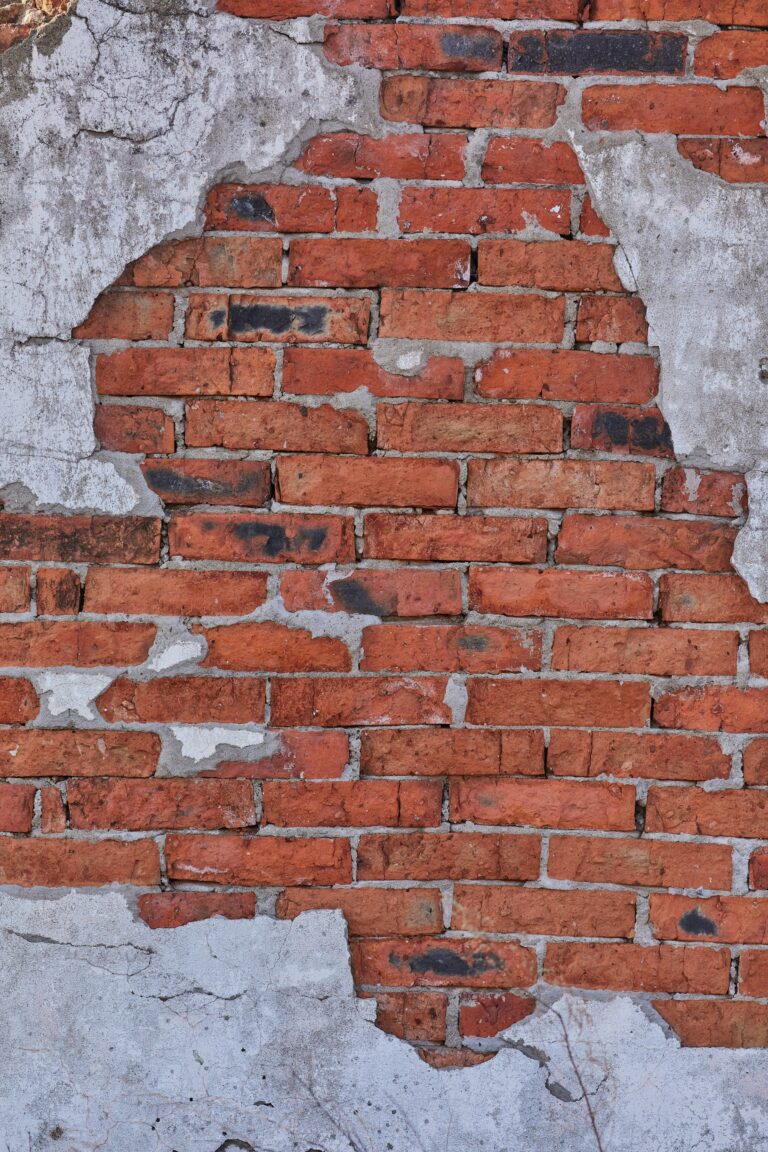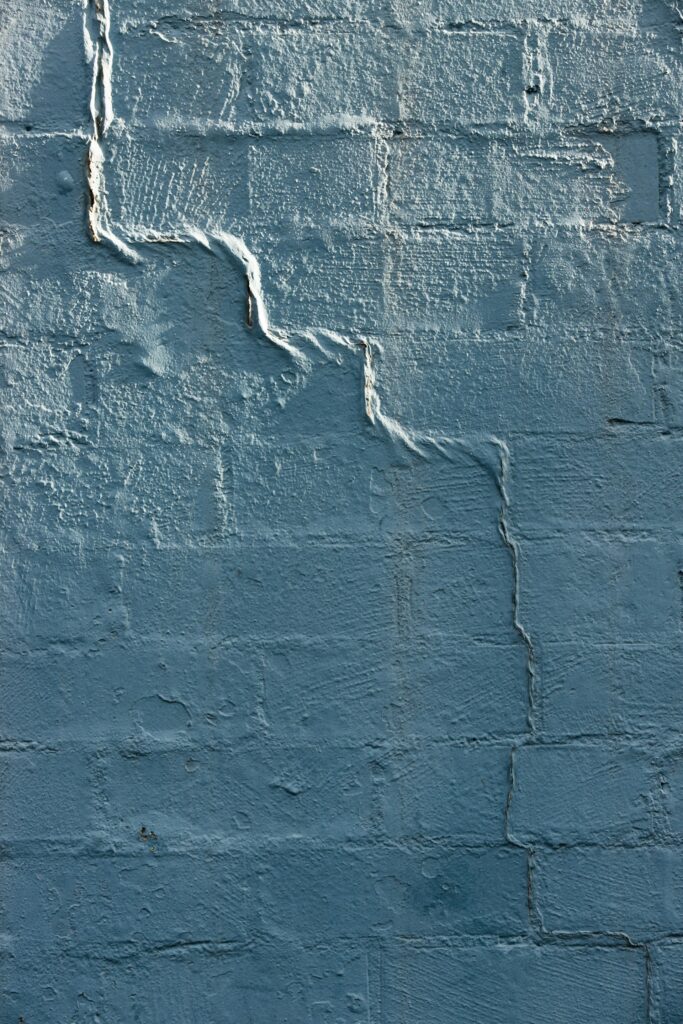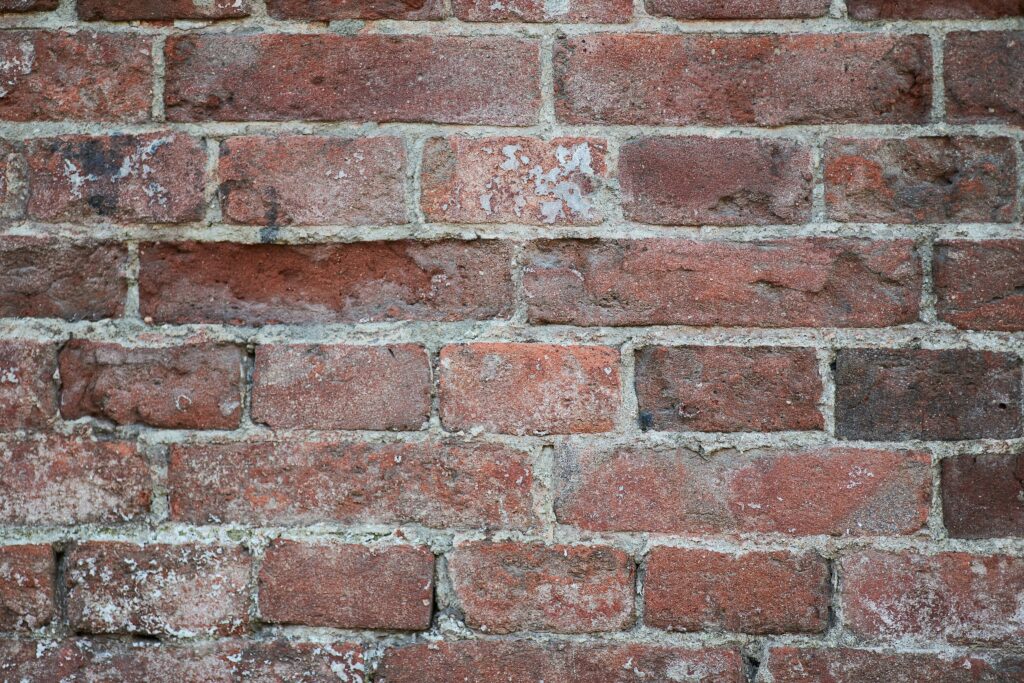
While we often think of bricks being near indestructible, this is often not the case. Most properties will see some form of cracks forming through the years, however understanding why they’re happening and how to prevent it getting worse is essential. So are cracks in bricks normal?
Seeing small or hairline cracks in bricks will happen from time to time. However, it’s important to repair these to stop them from getting worse. If you see larger cracks that span across multiple bricks, this could be a structural issue and will need immediate attention from a professional.
Read on to find out more about if cracking in bricks or brick mortar are normal, when to worry about a crack, and how to repair them.
Are Hairline Cracks in Brick Normal?
Hairline fractures in clay bricks can often happen in different ways. Cracks will often occur from external factors such as water, rain, and shifting soil. or when the house settles. Due to a brick’s inflexible nature, factors like these can cause the brick to crack and fracture.
Hairline cracks in bricks generally aren’t anything to worry about, however it’s always a good idea to repair them with masonry repair caulk or specialised mortar before they become wider and deeper. This is because cosmetic cracks can often become larger, structural issues over time.
While these are usually fixable with some DIY, if you’re unsure about any hairline fractures in bricks it’s always better to get an expert’s advice. We offer RICS Building Surveys that are perfect for anyone that wants to check for structural damage before committing to a home purchase.
When to Worry About Cracks in Bricks
When a crack becomes structural, that’s when there’s a real issue with the property. These cracks will usually take the form of a staircase, with diagonal jagged lines running through multiple bricks.
Some of the biggest indicators of structural cracks are diagonal cracks that:
- Are found above doorways or door frames
- Can show natural light through them
- Are deep in appearance
- Are wider than 5mm

Are Cracks in Brick Mortar Normal
While small cracks in brick mortar aren’t a major issue, leaving it to worsen can cause structural issues further down the line. It’s important to prevent this, and take care of the small cracks with some DIY. A hairline crack in the brick mortar doesn’t mean that there are structural issues, so you’ll generally be fine.
When to Worry About Cracks in Brick Mortar
If the cracks are running through a lot of the mortar on a particular wall, this could be an issue such as the foundation slumping and causing the wall to shift. Similarly, if the cracks are wider than a hairline crack or if the mortar is falling out from between the bricks, this is the sine of a hidden structural problem and you should get this checked.
If you’re looking at buying a house and spot excessive cracks in the property’s brick mortar, you might want to get it checked with an RICS registered surveyor such as Crest Surveyors to ensure there’s no further problems. We can perform RICS level 2 and level 3 surveys, so no matter what the condition of the property, we’ll be able to provide you with comprehensive advice to help you make the right decision.

How to Repair Cracks in Brick Walls
The process for repairing a crack in a brick wall will often vary depending on the position of the crack on the wall and the cause of the crack. We found this summarised step-by-step guide on how to repair cracks in brick walls:
- Remove any cracked mortar from the wall up to 2cm deep using either a chisel or raking bar.
- Brush away any excess dust or mortar.
- Spray the old mortar with water to stop it absorbing too much water.
- Fill the loose sections with new mortar using a jointer brush – make sure not to leave any gaps/voids.
- Use a pointer to flatten the mortar and fit the style of the surrounding walls.
Building Surveys With Crest Surveyors
At Crest Surveyors, we help homebuyers make the right decision on their potential new property by conducting in-depth RICS Homebuyer Surveys (level 2) and RICS Building Surveys (level 3). All of our surveyors are RICS approved, meaning that you can make your decision with confidence.
We know that buying a property can be a very stressful time, and that’s why we work to have our surveys completed at an affordable price within 2-3 weeks. Get in touch with a member of our friendly team for more information on how we can help you today.
